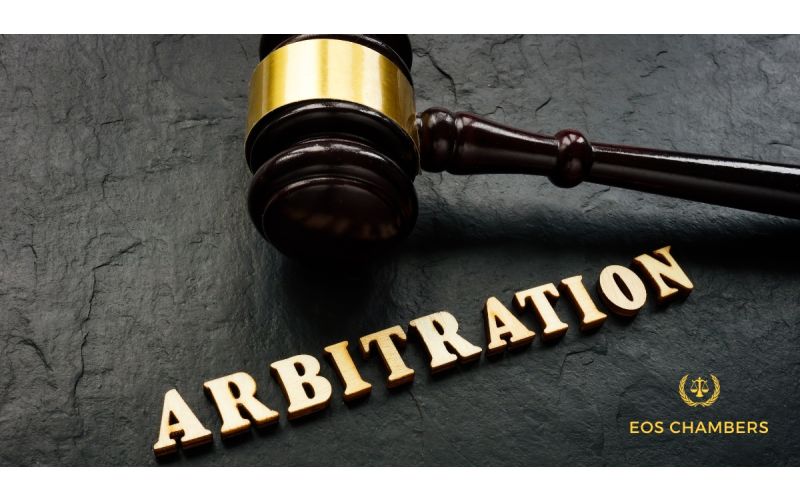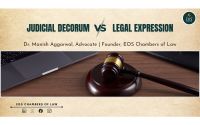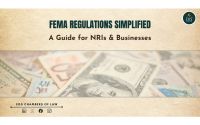Section 47 CPC | Executing Court Can Consider Only Questions

Section 47 CPC | Executing Court Can Consider Only Questions Limited To Execution Of Decree; Can't Go Behind Decree: Supreme Court
Lamenting the long delay in the execution of decrees, the Supreme Court observed that under Section 47 of the Code of Civil Procedure, the Executing Court can only go into questions that are limited to the execution of decree and can never go behind the decree.
As per Section 47, all questions arising between the parties to the suit in which the decree was passed, or their representatives, and relating to the execution, discharge or satisfaction of the decree, shall be determined by the Court executing the decree and not by a separate suit.
Referring to this Section, the Court said :"A bare perusal of the aforesaid provision shows that all questions between the parties can be decided by the executing court. But the important aspect to remember is that these questions are limited to the “execution of the decree”. The executing court can never go behind the decree."
A bench comprising Justices Sanjay Kishan Kaul and Sudhanshu Dhulia was hearing a civil appeal filed by a landlord, aged above 70 years, challenging an order of the High Court, which directed the Executing Court to take a fresh decision on the objections raised by the tenants (judgment-debtors) to the maintainability of the execution petition in the eviction suit.
The execution petition was filed on the strength of a compromise decree, as per which the landlord was entitled to seek eviction if there was default in payment of rent by the tenant. In 2013, the Executing Court held that the decree can be executed, as there was default in payment of rent. Four years later, the tenants filed an application under Section 47, objecting to the maintainability of the execution petition, by denying that there was any default. The Executing Court rejected the objections by holding that it was not raised before in 2013.
The landlord approached the Supreme Court aggrieved with the High Court's order asking the Executing Court to look afresh into the objections.
At the outset, the Supreme Court expressed its anguish at the plight of a decree-holder in getting the decree executed.
"As long back as in 1872 (when the CPC of 1859 was in operation), it was observed by the Privy Council that, “the difficulties of a litigant in India begin when he has obtained a decree”. The situation, we are afraid, is no better even today."
The Court observed: “Under Section 47, CPC the executing court cannot examine the validity of the order of the court which had allowed the execution of the decree in 2013, unless the court’s order is itself without jurisdiction.”. Further, the Court also pointed out that the 2013 execution order was never challenged by the tenants/judgment debtors before any forum.
The Court expressed its concerns pertaining to the inordinate delay in execution of a decree. It opined: “the reality is that pure civil matters take a long time to be decided, and regretfully it does not end with a decision, as execution of a decree is an entirely new phase in the long life of a civil litigation. The inordinate delay, which is universally caused throughout India in the execution of a decree, has been a cause of concern with this Court for several years"
Post Categories
Featured Posts
Latest Posts
Latest Posts

Navigating the Future The Rising Demand for Faster Resolutions through Arbitration...
Dear community In the ever-evolving landscape of dispute resolution the demand for faster and more efficient solutions is on the rise As businesses and individuals seek alternatives to protracted litigation arbitration has emerged as a compelling choice Let's delve into...

Get Online Pass To Enter Supreme Court Premises...
The Supreme Court on Thursday launched lsquo SuSwagatam rsquo a new initiative to generate entry passes online to help those who need to visit the court premises for various purposes Chief Justice of India CJI D Y Chandrachud on Thursday...

Uttarakhand Uniform Civil Code Receives President's Approval...
In a crucial development the Uttarakhand Uniform Civil Code UCC Bill has been granted assent by President of India Droupadi Murmu nbsp It may be recalled that in a committee was formed by Pushkar Singh Dhami-led Uttarakhand Government to...

Empowering Dispute Resolution How Technology is Shaping the Future of ADR...
The Role of Technology in Enhancing ADR Processes The advent of technology has transformed virtually every industry and the field of Alternative Dispute Resolution ADR is no exception ADR processes including mediation arbitration and negotiation have traditionally relied on...

Prashant Mishra KV Viswanathan Take Oath As Supreme Court Judges...
By India Today News Desk Justice Prashant Kumar Mishra and senior advocate KV Viswanathan were sworn-in as Supreme Court judges on Friday a day after the Central government nbsp cleared the appointment of the advocates New Union Law Minister Arjun...

Government trying to draft laws in simple manner and in Indian languages Pm Modi...
Prime Minister Narendra Modi emphasized the importance of lawyers and the judiciary in shaping the country's legal system Prime Minister Narendra Modi expressed his gratitude to the legal fraternity for their substantial contribution to the country's independence movement and its...

Speak With Our
Get a Appointment
















